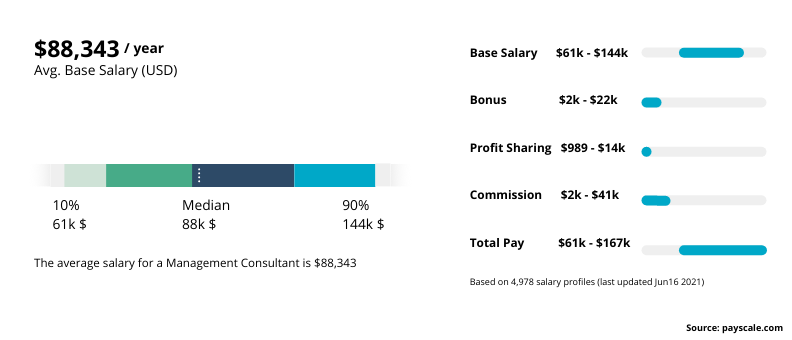
The main question when it comes to choosing the right entity for your business is which one is best: an LLC? or an S Corp. Which one will be better for your company? Both the most common business structures can be tax-efficient. In addition to that, you'll also want to think about the issue of Pass-through taxation and double taxation. This article will discuss both topics. The ultimate choice is ultimately up to you, but consider the advantages and disadvantages of each entity before you make your decision.
llc vs s corp vs s corp vs s corp vs s corp vs s corp vs s corp vs s corp v
There are many important differences between an LLC (or S Corp), and this article only touches the surface. It doesn't matter how your business is structured, organization is crucial for your business's success. Barrett McNagny will provide you with more information about each entity's advantages and disadvantages. It is a good idea, prior to deciding which entity, to analyze your business's needs.

An LLC and an S Corp are two different types of entities that you should know if your business is being started. A LLC can protect your personal liability, but an S corp may offer tax benefits. However, operating as an S corporation means that there are additional regulations and restrictions to management. An LLC is the best option if your business employs more than two people. An S Corp will also have limited liability, but a large amount of legal and tax benefits.
Taxation is another major difference between an LLC or an S corporation. An LLC is subject to the same taxation as a sole proprietorship and partnership, with the exception that it can pay employment taxes. S corporations also allow owners to receive reasonable salaries. Without employees, however, an LLC can't make a profit. An LLC can cost more to manage than an S-corporation.
Double taxation vs pass-through
S corporations and LLCs can often be compared when it is about taxes. Although LLCs generally pay less tax than S-corps, the differences between them are not that significant. Depending on the structure of an LLC, it can be taxed either as an S corporation or a C corporation. Additionally, LLCs with multiple owners can choose to be taxed either as an S corporation or a C corporation. In this case, the LLC pays personal income tax on their members' profits. This structure offers the best advantage because the business owners can benefit from deductions for their business income by claiming the revenue of their business on their personal tax returns.

Another advantage of an LLC is its flexibility. An S Corporation has the same legal protections that a C Corporation but LLC owners have the option to be taxed as a C corporation. An LLC allows them to save money on self-employment taxes, while also enjoying the pass through taxation benefits. A C-Corporation can be chosen or an S-Corporation, depending on your financial situation.
FAQ
What happens after the consultant completes the job?
After the consultant completes their work, he/she will submit a final summary of the results. This report contains all relevant information, such as project timelines and deliverables.
After that, you'll go through the report and decide if it meets your expectations. You can request modifications or terminate your contract if the report is not satisfactory.
Is it possible to be a consultant?
A consultant is someone who helps you achieve your goal by providing advice on how to do something better, faster, cheaper, etc.
Consulting can be a great way to solve problems, make informed decisions, and work with others.
Consultants are often hired for specific projects or tasks.
In reality, consultants are generally paid hourly or daily rates and not per project.
How do I start an LLC consultancy business?
First, determine what you are looking to do as service provider. Then you need to make sure you are qualified for those services. It may also be beneficial to look for someone who is already qualified to do what you desire and to see how they work.
Once you know what you want to provide, then you should try to figure out where your target market is. You may have to create more if there aren’t enough.
Then you need to decide whether you want to go into business for yourself or hire others to do it for you.
You could also consider starting your own consulting company by getting a license from the state, but this requires quite a bit of paperwork and legal fees.
Statistics
- Over 62% of consultants were dissatisfied with their former jobs before starting their consulting business. (consultingsuccess.com)
- According to statistics from the ONS, the UK has around 300,000 consultants, of which around 63,000 professionals work as management consultants. (consultancy.uk)
- "From there, I told them my rates were going up 25%, this is the new hourly rate, and every single one of them said 'done, fine.' (nerdwallet.com)
- 67% of consultants start their consulting businesses after quitting their jobs, while 33% start while they're still at their jobs. (consultingsuccess.com)
- On average, your program increases the sales team's performance by 33%. (consultingsuccess.com)
External Links
How To
How to start a consulting company and what should I do first?
A consulting business is a great way of making money online. It doesn't require any prior business experience nor capital. You can start your own consulting firm by building a website. You can use social media platforms like Facebook, Twitter, LinkedIn and Instagram to promote your services.
You can create a marketing strategy that includes these things with these tools
-
Create content (blogs).
-
Establishing relationships (contacts).
-
Generating leads through lead generation forms
-
Selling products via ecommerce websites
Once you've created your marketing strategy, the next step is to find clients who are willing to pay you for your services. Some prefer to meet up at networking events or go to meetings, while others prefer to use online platforms like Craigslist, Kijiji, and others. It's up to you to make the decision.
After you have found new clients, it's important to discuss terms and payment options. This could include hourly fees, retainer agreements, flat fee contracts, etc. You need to be clear about what you expect of a client before they accept you as a client.
The most common type of contract for a consultancy service is an hourly agreement. In this case, you agree to provide certain services at a fixed rate each month or week. Depending on the type of service you are offering, you may be able to negotiate a discount depending on the length of the contract. When you sign a contract, make sure you fully understand it.
Next, you will need to create invoices that you can send to your clients. Invoicing is one thing that looks simple until it's actually done. There are many different ways to invoice your clients, depending on your preferences. For example, some people prefer to have their invoices emailed directly to their clients, while others print hard copies and mail them. No matter what you do, make sure it works!
Once you have completed creating invoices you will want to collect payment. Most people prefer PayPal because it is easy to use and offers various payment options. There are many other payment options, such as Square Cash, Square Cash and Google Wallet.
Once you are ready for payments to begin, you will need to open bank accounts. Separate checking and savings accounts allow you to keep track of income and expenses separately. It is also a good idea to set up automatic transfers into your bank account for paying bills.
It may seem overwhelming to start a consultancy, but once it is done correctly, it becomes second-nature. For more information on starting a consultancy business, check out our blog post here.
You can make extra money by starting a consulting company without worrying about staff. Many consultants work remotely, which means they don't have to deal with office politics or long hours in the office. Being able to work remotely allows you more freedom than traditional employees.